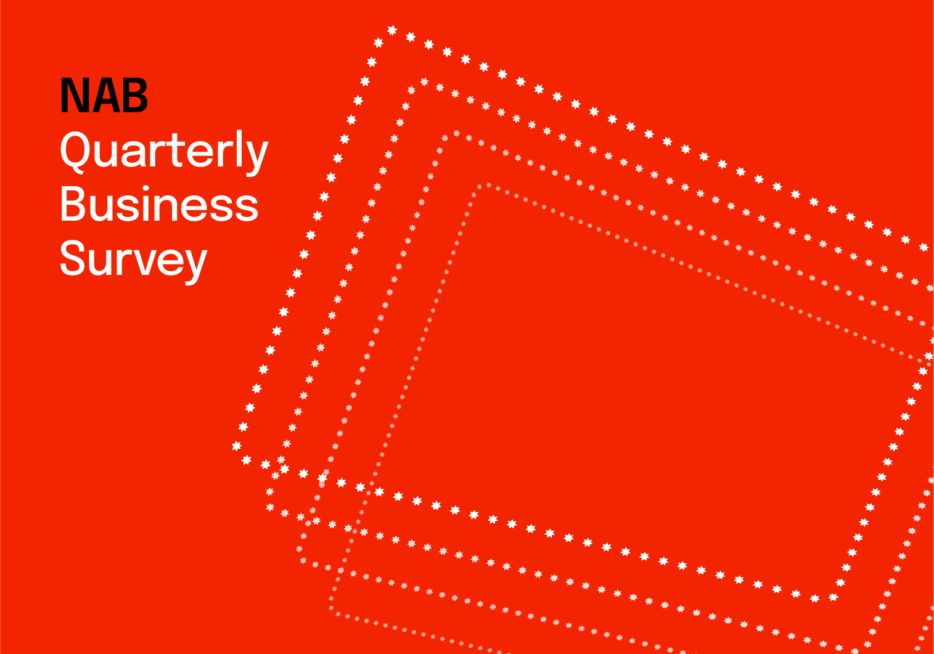Price growth edges lower despite reasonable economy

Insight
A survey of more than 100 Australian health practitioners found an interesting mix of contentment and concern. It appears practitioners are torn between mounting challenges and exciting opportunities.
Having worked in law, wealth management and banking, I’ve dealt with many healthcare professionals, especially doctors, as clients over the course of my career. So, I have some understanding of how they think.
Nevertheless, it was interesting to see some of the contrasting findings presented in NAB’s new 2018 Health Practitioner survey.
Here, I’ll outline three incongruities and speculate on what’s causing them.
Less than half of the health practitioners surveyed believe Australia will have a world-class health system in 2028, according to our survey. They’re also less likely to recommend family members follow in their footsteps than was the case in 2008. Yet they also typically report that business is strong.
The latter part of this equation is easy to explain: practitioners are positive about their current circumstances because they have reason to be. In an era of stagnant wage growth, people are tightening their belts when it comes to visiting restaurants or buying toys for their kids but they are still spending on essentials such as healthcare. Compared to participants in most other sectors, health practitioners are still enjoying strong trading conditions and healthy margins.
So, why the pessimism? Especially given Australia’s growing and ageing population, the introduction of the NDIS and, more recently, the Home Care Packages Program?
The gloominess appears to result from a combination of long-standing challenges – long hours, sleep deprivation, demanding patients, potential litigation and dealing with death – alongside new or worsening ones, such as corporatisation, compliance/regulatory burdens and an oversupply of graduates providing greater competition.
It’s perfectly understandable if practitioners believe there’s a cloud for every silver lining. For example, increased government spending gives scope to increase revenue but it also involves submitting to another raft of compliance.
While practitioners have valid causes for concern, this could be a wake-up call to the need to invest in the health sector (both government and private), and reinforce our confidence in heath and our commitment to practitioners. More impartial observers rate Australia’s healthcare system highly and there’s little reason to expect it to degenerate any time soon. Also, plenty of smart commercial participants, including NAB, are expecting many practitioners to maintain profitable practices for many years to come.
Many health practitioners, particularly those providing dental services, are engaging in above-average (compared to the broader economy) levels of capital expenditure, according to our study.
They see digital health as possessing only “moderate” potential to favourably affect patient care, and significantly favour face-to-face interactions with patients over ones conducted via electronic channels. While they’re increasingly engaging in online marketing, they continue to believe that word-of-mouth recommendations from their existing patients are the key growth driver for their practices.
I suspect practitioners believe e-health has been overhyped. At the same time, they fear the health sector will inevitably face the kind of wide-ranging disruption that has turned so many other sectors upside down. Practitioners have embraced ‘back-office’ technology such as practice management software and online booking and payment systems. But they believe the technology on offer to conduct many core activities (such as examining patients) isn’t yet superior to the traditional way of doing things. While they are unsure about their longer-term future, they don’t foresee robotics or artificial intelligence (AI) challenging a majority of jobs in the next five to 10 years.
Breathless predictions of vast numbers of jobs being automated away in the near future certainly seem to be proving overblown. Some routine and repetitive tasks practitioners currently undertake will be automated, but I don’t see anybody wanting to have ongoing discussions on a a serious health issue with a chatbot any time soon.
Despite worrying about a host of current challenges, feeling uncertain about their futures and working long hours in high-pressure jobs, health practitioners continue to report high levels of happiness and low levels of anxiety.
Health practitioners reporting above-average levels of personal well-being, particularly with regard to their sense of ‘life worth’, isn’t hard to explain. Whatever their current or potential future challenges, health practitioners are usually doing interesting, well-respected and purposeful work that improves the lives of others.
Health practitioners might be more positive about the future if they realised that NAB is betting big on them having long and prosperous futures.
As part of a recent re-commitment to Australia’s growth sectors, NAB has doubled its already impressive commitment to Australia’s health sector. Among other things, that will mean twice as many specialist health bankers. These bankers will be accessible and connected to practitioners at times that are convenient for them.
It will also mean even larger investments in technology to provide the best possible digital banking experience to health practitioners. Expect to see lots more innovations like HICAPS Go. This end-to-end service for health practitioners – which allows their patients to book, claim and pay from their mobile phone – was developed in conjunction with NAB Labs and NAB Ventures.
It’s an exciting time in health and, while as in all sectors there is significant change ahead, I’m confident Australia’s health sector is ready for those challenges. NAB is certainly excited by to be backing our customers and supporting them on their bold journeys into the future.
© National Australia Bank Limited. ABN 12 004 044 937 AFSL and Australian Credit Licence 230686.